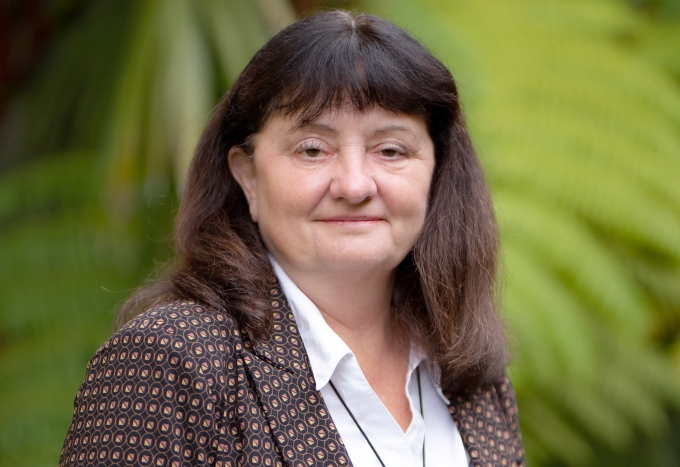Tresa Pollock, a world-renowned materials scientist who is interim dean of the UC Santa Barbara College of Engineering and the Alcoa Distinguished Professor of Materials, has been selected for Honorary Membership in the French Society of Metallurgy and Materials (Société Française de Métallurgie et des Matériaux) for 2021. Only one honorary member is elected to the society each year in recognition of his or her outstanding service and achievements in the field.
“I am tremendously honored to be recognized by my metallurgical colleagues at the international level,” said Pollock. “I see this distinction as a reflection of the outstanding work performed by collaborators, dedicated postdoctoral researchers and graduate students, including those with connections to French universities and industries.”
Pollock’s research is focused on the mechanical and environmental performance of materials in extreme environments, processing paths for unique high-temperature materials, ultrafast laser-material interactions, alloy design, and the characterization of 3D materials. She has played a leadership role in the development and advancement of the U.S. Materials Genome Initiative (MGI), a federal multi-agency initiative for discovering, manufacturing, and deploying advanced materials twice as fast and at a fraction of the cost compared to traditional methods. The initiative creates policy, resources, and infrastructure to support U.S. institutions in adopting methods for accelerating materials development.
She has recently invented new structural alloys for 3D printing, and in 2020, Thermo Fisher Scientific, the world’s leading microscope manufacturer, began commercial production of the novel tomography system she invented. Designated the “TriBeam,” the instrument is the first to combine an extremely fast femtosecond (10-15 seconds) laser beam, an ion beam, and an electron beam. The novel system enables 3D imaging of both hard and soft materials and makes it possible to acquire, layer-by-layer, a unique set of information about a material’s chemistry and structure, which is then reconstructed into 3D data sets.
Pollock received her PhD from the Massachusetts Institute of Technology in 1989, after earning her BS from Purdue University in 1984. She was employed at General Electric Aircraft Engines from 1989-1991, where she conducted research and development on high-temperature alloys for use in aircraft turbine engines and co-developed the single-crystal alloy René N6, which is now in use.
Pollock was a professor in the Department of Materials Science and Engineering at Carnegie Mellon University from 1991-1999 and at the University of Michigan from 2000-2010. In addition to developing the TriBeam, her recent research has been focused on damage detection and modeling by resonant ultrasound spectroscopy, thermal-barrier coatings systems, new intermetallic-containing-cobalt base materials, nickel-base alloys for turbine engines, lightweight magnesium alloys, Heusler-based thermo-electrics, and bulk nanolaminates.
Professor Pollock was elected to the U.S. National Academy of Engineering in 2005 and the German Academy of Sciences Leopoldina in 2015, and is a DOD Vannevar Bush Fellow and Fellow of the Minerals, Metals & Materials Society and ASM International. She serves as editor in chief of the Metallurgical and Materials Transactions family of journals and was the 2005-2006 President of The Minerals, Metals and Materials Society.

Professor Tresa Pollock, Interim Dean, UCSB College of Engineering.
